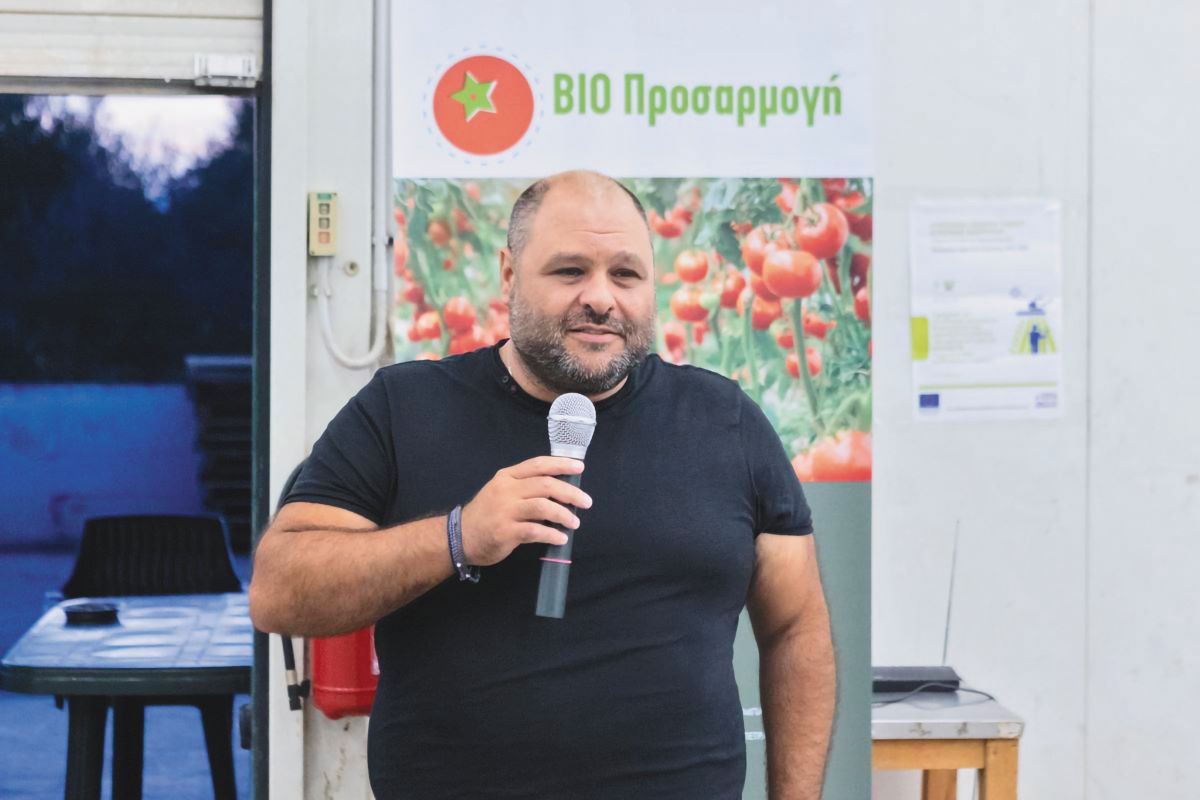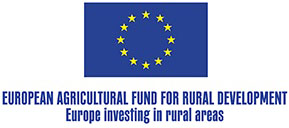
M. Berkakis, Director of the Agroindustrial Cooperative of Tympaki: “Better production, both quantitatively and in terms of the quality of the fruit”
The director of the Agroindustrial Cooperative of Tympaki, Manolis Berkakis, spoke to “YX” about the use of biostimulants in the production of greenhouse tomatoes by the cooperative’s producers, in the framework of the pilot project of the ‘BIO-ADAPTATION” Operational Group, which is funded by Measure 16.
The Agroindustrial Cooperative of Tympaki was established in 1945. Located on the coast south of Heraklion, Tympaki has a long tradition of cultivation of greenhouse vegetables and olive oil. The cooperative has been operating since 2010 as a recognised Producer Group, currently with 134 members who are experienced and certified growers. Tomatoes grown in 40 hectares of greenhouses are distributed through its facilities. The cooperative has a total of 540 members. The Agroindustrial Cooperative has vertically integrated its production and offers its members comprehensive services. It operates an olive mill, an agricultural supplies store, an auction centre, a transport agency, a branch in Athens, and a Farmers’ Service Centre in Tympaki.
“Usually, producers are reluctant to diverge from their routine. However, a small but significant number participate in innovative actions like this.” – Manolis Berkakis, Director of the Agroindustrial Cooperative of Tympaki
How did you decide to participate in the programme?
We – the producers – make an effort to put into practice the knowledge produced in universities. In this context, we also joined this programme to try out biostimulants and see how they impact the production of greenhouse tomatoes. We started applying specific formulations, based on the instructions of the agronomists from last season. The Agricultural University guided the producers and took the measurements so that we could get measurable results.
What were the results of applying the biostimulants to the specific crop?
Positive. In most of the greenhouses where the biostimulants were used, we had better production. In some, we did not have spectacular results, but this may have happened for other reasons, such as, for example, not applying the biostimulants correctly.
What did the biostimulants you used help with?
The plants are now healthier, stronger and, in the end, produce better in terms of both quantity and quality of the fruit.
Were the producers open to using the biostimulants?
There is always a percentage who want to implement new things. Producers are usually reluctant to diverge from their routine. However, a small but significant number participate in innovative actions like this.
Is the tomato you produce aimed at the domestic or foreign market?
We grow vegetables in greenhouses, during winter. Some traders we work with take our products and export them, but mostly in the case of peppers and cucumbers. The tomato varieties we plant are mainly consumed in the Greek market.
They have more flesh and sugar, but they aren’t that tolerant of transport; they don’t have a long shelf life. Greeks prefer large tomatoes, while in other countries they prefer medium-sized tomatoes, like the ones they have in Spain.
Regarding the cooperative’s finances, would you say there is room for growth?
We have old loans that we are paying off on schedule. Our turnover is increasing, so I think we’re doing well. Now we are trying to get into the standardisation of olive oil. With the rise in olive oil prices that took place, we stopped pursuing it, because on the one hand prices were good, but on the other hand the market was not stable. But now we’re back on track. Our main goal is to export standardised olive oil so we can get better prices. On the Greek market, the prospects for bottled olive oil are limited.
“Usually, producers are reluctant to diverge from their routine. However, a small but significant number participate in innovative actions like this.”





